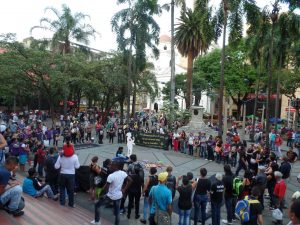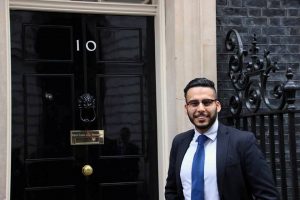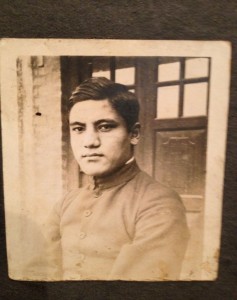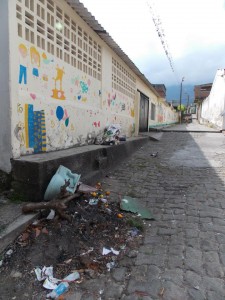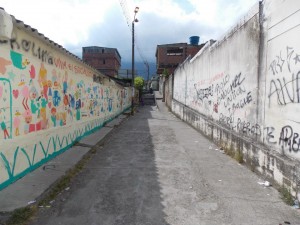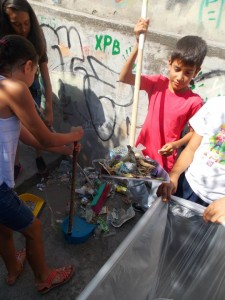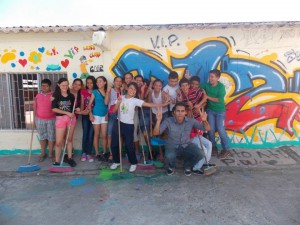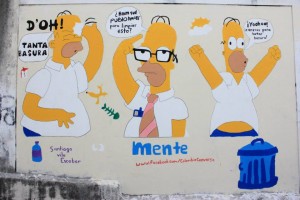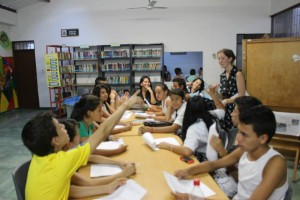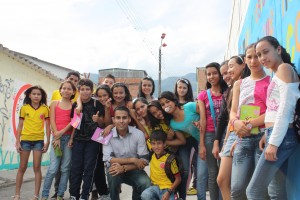Editor’s Note: Sara G. Arellano is a recent graduate, past participant in the UCDC and Summer Undergraduate Research programs, and winner of the Fulbright Study/Research grant to Colombia. She was a transfer student and has lobbied state representatives as a Legislative Intern for ASUCI. She plans to conduct research on victims of domestic violence in Medellín. After Fulbright, she plans to earn a Master’s in Public Policy or Juris Doctorate and enter a government career.
Wednesday, August 30, 2016, a historic day for Colombia. After experiencing over 50 years of an internal armed conflict between the Colombian Government and the Fuerzas Armadas Revolucionarias de Colombia–Ejército del Pueblo (FARC–EP) the two sides successfully negotiated an agreement for peace. President Juan Manuel Santos approved Decree Number 1390, which provides for the plebescito to be placed before the citizens of Colombia. The plebescito will have one question, “¿Apoya el acuerdo final para terminación del conflicto y construcción de una paz estable y duradera?” which translates to, “Do you support the agreement to terminate the conflict, and the construction to establish a stable and lasting peace?” (El Tiempo). The available options are “Sí” or “No” for the citizens to approve or reject the peace agreement between the Colombian Government and the FARC-EP. The plebiscito, which is similar to a bill/referendum, will be voted on the 2nd of October 2016. The actual agreement was finalized in La Habana, Cuba, and contains 297 pages—the product of four years of negotiations between the Colombian Government and the FARC–EP. The document mandates a bilateral ceasefire, addresses land reparations for those forcibly displaced, settlement of contested land titles, economic development, as well as numerous complicated and highly sensitive issues (especiales.semana.com).
Coincidentally, Ruta Pacifica de las Mujeres, the organization that is collaborating with me on my research, held their monthly “plantón” on that same day, August 30th at Parque Berrio plaza in Medellín, Colombia. The “plantón” is a gathering of women who demonstrate for an end to violence against women and advocate for a peaceful resolution to the armed conflict. As I witnessed the demonstration, one woman sat silently “tejendo” (crocheting) as approximately seventy women, and several children and men formed a protective circle around her. At her side was a silhouette of a woman, and on the ground next to her was a large round sign made of raw corn kernels and beans that prominently displayed the word “SI” (Yes, for the plebscito). The woman “tejendo” symbolized the weaving of life, as well as the weaving of Perdón, Resistencia, Memoria, Verdad, Esperanza, Justicia, Reparación, NO Repetición, and Vida (translated as Forgive, Resistance, Memory, Truth, Hope, Justice, Repair, NO Repetition, and Life) which were the additional signs that were displayed one by one by different women, and subsequently attached to the “SI” sign. The demonstrators chanted slogans, and sang songs for a “SI” vote. After approximately one hour the demonstration ended peacefully.
Several Colombian citizens I have spoken with have questioned as to how the FARC–EP will be integrated into civil society, as well as concerns regarding the remaining armed paramilitary and organized criminal groups such as the Autodefensas Unidas de Colombia, Ejército de Liberación Nacional, and the bandas criminales, also referred to as BACRIM. However, several women whom I have spoken with advocate for a “Sí” vote, as they believe it is the best alternative. In the next several weeks leading up to the plebscito, there will be numerous peaceful demonstrations strategically conducted throughout the city by the network of women organizations based here in Medellín, as they advocate for a “Sí” vote. They strongly believe a “yes” vote will end the over fifty-year armed conflict in Colombia, which will allow the beautiful people of Colombia to begin a new phase, as they strive for a path for peace.
Sara G. Arellano
Fulbright U.S. Student in Medellín, Colombia, 2016-2017
B.A. Political Science, University of California, Irvine
El Tiempo.com. August 30, 2016. Política. Proceso de Paz. “Oficial: esta es la pregunta para el plebiscito por la paz”.
http://www.eltiempo.com/politica/proceso-de-paz/plebiscito-por-la-paz-pregunta-del-plebiscito-por-la-paz-en-colombia/16686937
Semana.com. September 1, 2016. Recomendado del Editor. “El Acuerdo Para Terminar La Guerra”.
http://especiales.semana.com/acuerdo-para-la-paz/
